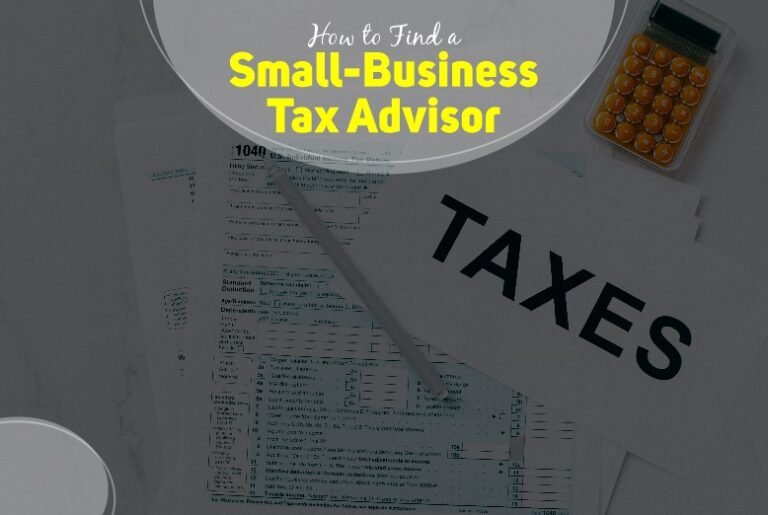A small-business tax advisor is usually kept on retainer by an organization, so he/she can offer advice on all financial matters, as well as prepare and eventually file business taxes. If the business should be audited by the IRS, a tax advisor would represent the company during all sessions needed to complete the audit.
This will be a professional who has the background and experience to maintain company records and plan for tax time, so the business can obtain the highest possible tax return. Having a deep knowledge of the business is another requirement of a tax advisor since all financial issues are conducted in a business environment. To find out more about the role and responsibilities of a tax advisor, simply navigate to this page and browse through some of the content offered.
Finding the right tax advisor for your small business
One of the best ways of finding a competent professional to advise you on business taxes is through referrals. You may have a business associate who already has a tax advisor that has done good work for them. It’s possible you could use the same person as your tax advisor, or that person might be able to recommend someone whom they know that is very knowledgeable and competent.
Another good way of finding qualified professionals is to do some research on your local professional tax organization. If you don’t have one of those nearby, you can always refer to the Association of International Certified Public Accountants. This organization will have a CPA directory you can use to locate qualified individuals in your area, whom you could interview and decide whether they might be a good fit for your company.
Interviewing a candidate tax advisor
You can increase the likelihood that a professional will be a good fit for your organization by some of the questions and responses you get when interviewing a candidate. Here are some of the most important things you should be asking them, and then you’ll have to evaluate their responses for how closely they align with your company policies and principles.
- Experience with your company’s issues – a candidate you choose should have some familiarity with your company’s industry, so you don’t have to instruct them about all the nuances of your business. It may not be necessary to hire an advisor who specializes in your industry, but it will be better if you don’t have to educate them about everything they will encounter.
- Year-round services – assuming your candidate has already worked as a tax advisor for other companies, you should find out exactly what kind of services they performed for those other companies. Ideally, they should have experience with the kinds of services that you need them to do as well, so you don’t end up having to indoctrinate them about all the details.
- Delivering results – find out what kind of results the candidate is used to delivering to clients. If they have some success stories from their past, ask the candidate to share some of these with you, so you can tell what kind of contribution they’ve made. When they share the names of other clients they’ve worked for, you should check these out and treat them as references. It can be extremely useful to know what other companies think about your candidate, and it may save you a ton of time if they’re not what you need. Make sure your candidate has not been involved with risky procedures in the past or processes that may be borderline illegal.
- Their role with your company – explain the role you have in mind for a tax advisor and how you see them interacting with others in your organization. If they don’t seem comfortable with that kind of role, you should probably look elsewhere because you don’t want to find out after you’ve hired them that they’re unhappy with the work you assign them.
- Responsibility for tax filing – anyone you hire as a tax advisor should be completely willing to stand behind all the work they do and represent you to the IRS as part of their duties. If you should be audited, you’ll want to know that your advisor will stand in for you and provide all answers honestly to the audit team.
Settling on one candidate
Unless you interview a candidate who is absolutely outstanding and is a no-brainer as the best candidate available, you’ll probably have to interview several candidates for the position. It should be a fairly easy process to choose one candidate who provides the best answers and who impresses you the most. However, if you have more than one candidate who is worthy of further consideration, it can be a little harder to make a decision.
In a situation like this, it’s usually a good idea to ask several of the financial people in your company to conduct a separate interview so as to get their impressions of the remaining candidates. You should be able to trust the judgment of your own company’s people, and their recommendations should help you decide between two or more candidates.



